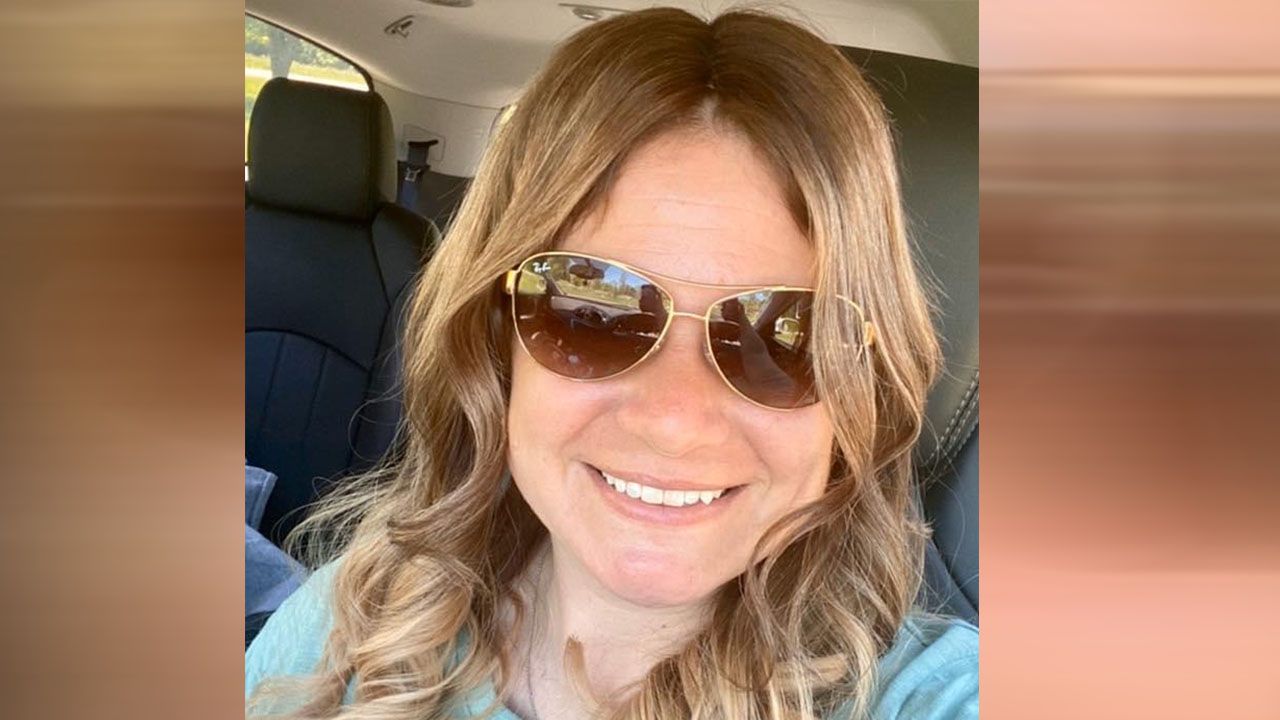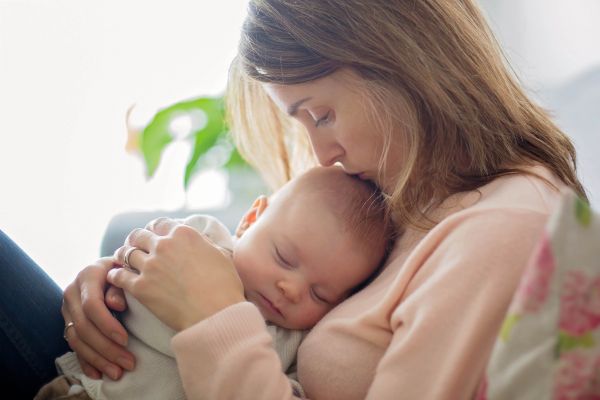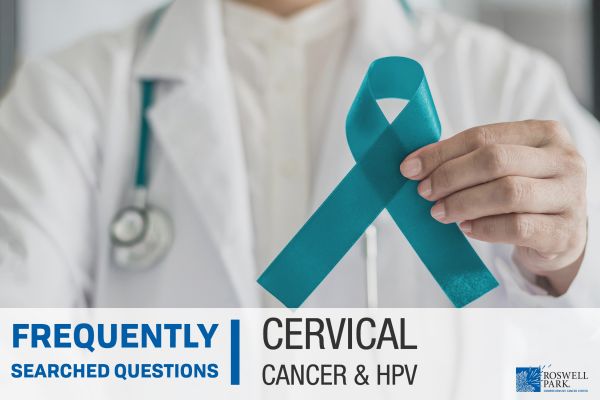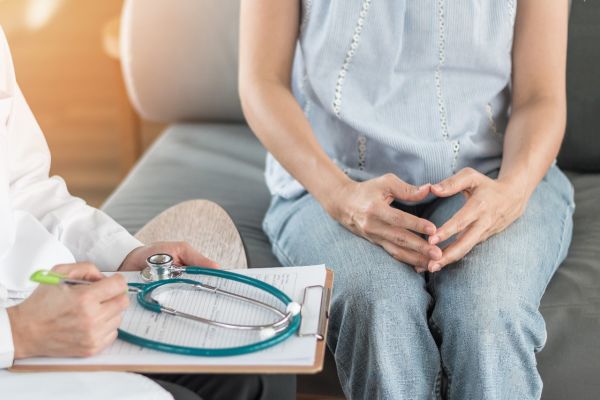Marking her birthday each November 12 means more than the passing of another year for Karan Durkin. On this day, she remembers the year she turned 41 and “had the world pulled out” from her with a diagnosis of cervical cancer. She remembers the birthday two years later when she learned her cancer was gone. And she remembers all the days in between those two birthdays when her early-stage cancer became widespread metastatic, getting a second opinion at Roswell Park Comprehensive Cancer Center, and what got her from there to here.
“I am cancer-free now, but there are no guarantees. I take each year as I can,” she says.
Inconclusive screenings caused confusion
Looking back, Karan wonders whether her diagnosis might have been determined years before she ended up in an emergency department with heavy vaginal bleeding. Cervical cancer is typically a slow-growing cancer. Each year she underwent a gynecologic exam and a Pap test — a screening test that detects abnormal and precancerous changes in the cells of the cervix; several times, the Pap test came back positive. On those occasions, she was called back for another test and told that she didn’t have cancer.
Then the bleeding began. A number of thoughts ran through her mind initially, such as early onset of menopause, cysts, fibroids or endometriosis. At the time, she simply pushed through her normal routine, running a business, parenting two daughters and spending hours at their high school working on costuming for a musical.
But the bleeding wasn’t subsiding, and she became so weak she had no other choice but to head to an emergency room. She was admitted for three days, received blood transfusions and underwent biopsies. The diagnosis? Stage 1-2b cervical cancer.
Despite a difficult month and a half of treatment, which included undergoing a hysterectomy, weekly chemotherapy infusions and radiation therapy five days a week for six weeks, Karan was devastated to learn that her cancer had not subsided either. A full-body CT scan showed massive spread, with tumors in her lungs, liver and kidneys.
“It was a horror story of a situation,” Karan says. “My friends and family — especially the medical people in my family — knew this was not good and urged me to call Roswell Park.”
A second opinion offers a second chance
Karan remembers her initial meeting with Stacey Akers, MD, very well. “Several people, including my husband, sister-in-law and best friend, came with me that day,” she says. “I’ve always been the one to take care of others, and I was having a very tough time letting others take care of me. But right then and there, I let them take over, because I was ready to quit.”
But by the end of that day at Roswell Park, Karan was not quitting. She had a new treatment plan, and over the next weeks, a confidence in it after having a team of cancer experts attend her. “I felt like all hands were on deck,” she says. “I saw the whole team work as a very thorough operating machine, everyone from the doctors and nurses, to pharmacists and receptionists.”
Karan’s treatment involved a combination of two chemotherapy drugs plus an immunotherapy agent. The regimen required six infusion sessions, one every 21 days, and each one took six hours. Karan credits the support of her husband, family and friends for getting her through it, especially her best friend, who is also a cancer survivor.
“Getting down is very easy to do, and depression is a big thing,” she says. “You see that life around you doesn’t stop. The biggest thing I can tell anyone going through cancer is, ‘Don’t be ashamed, and to talk to others.’ Everybody is fighting a different battle, with different treatment and different side effects.”
Never miss another Cancer Talk blog!
Sign up to receive our monthly Cancer Talk e-newsletter.
Sign up!That year, on November 12, Karan received the news that she was cancer-free. “Hearing those words was a gift, not just to me but to everyone that had been such an instrumental part of helping me and my family through so many challenges. Walking through the day-to-day journey of ‘what if’ uncertainty is definitely a challenge to overcome, but the confidence of being surrounded by a remarkable team at Roswell and at home makes anything seem possible.
“I would tell anybody to go to Roswell. If you’ve been told somewhere else that something can’t be done, it can be done at Roswell. They make it happen with their care and treatments and the collective compassion of everyone there. Roswell left a big impact on my family.”
Editor’s Note: Cancer patient outcomes and experiences may vary, even for those with the same type of cancer. An individual patient’s story should not be used as a prediction of how another patient will respond to treatment. Roswell Park is transparent about the survival rates of our patients as compared to national standards, and provides this information, when available, within the cancer type sections of this website.



